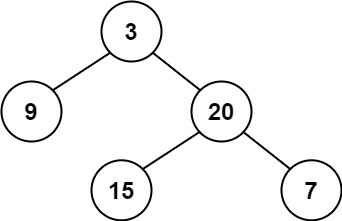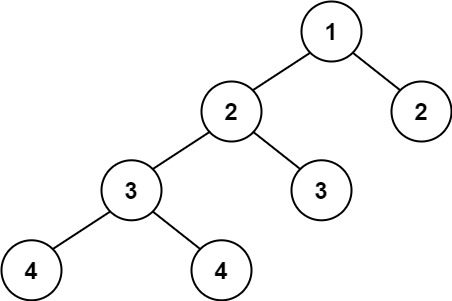Description
Given a binary tree, determine if it is
height-balanced
.
Example 1:

Input: root = [3,9,20,null,null,15,7] Output: true
Example 2:

Input: root = [1,2,2,3,3,null,null,4,4] Output: false
Example 3:
Input: root = [] Output: true
Constraints:
- The number of nodes in the tree is in the range
[0, 5000]. -104 <= Node.val <= 104
Code
Recursion + Hashmap
/**
* Definition for a binary tree node.
* struct TreeNode {
* int val;
* TreeNode *left;
* TreeNode *right;
* TreeNode() : val(0), left(nullptr), right(nullptr) {}
* TreeNode(int x) : val(x), left(nullptr), right(nullptr) {}
* TreeNode(int x, TreeNode *left, TreeNode *right) : val(x), left(left), right(right) {}
* };
*/
class Solution {
unordered_map<TreeNode*, int> mp;
public:
bool isBalanced(TreeNode* root) {
if(!root) return true;
int l = getHeight(root->left);
int r = getHeight(root->right);
return abs(l - r) <= 1 && isBalanced(root->left) && isBalanced(root->right);
}
int getHeight(TreeNode* node) {
if(!node) return 0;
if(mp.find(node) != mp.end()) return mp[node];
int l = getHeight(node->left);
int h = getHeight(node->right);
return mp[node] = (max(l, h) + 1);
}
};